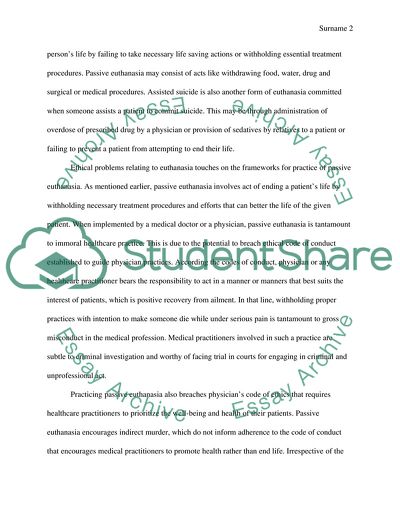Cite this document
(Ethical Problems of Euthanasia Essay Example | Topics and Well Written Essays - 1500 words, n.d.)
Ethical Problems of Euthanasia Essay Example | Topics and Well Written Essays - 1500 words. https://studentshare.org/ethics/1812422-ethical-problems-of-euthanasia
Ethical Problems of Euthanasia Essay Example | Topics and Well Written Essays - 1500 words. https://studentshare.org/ethics/1812422-ethical-problems-of-euthanasia
(Ethical Problems of Euthanasia Essay Example | Topics and Well Written Essays - 1500 Words)
Ethical Problems of Euthanasia Essay Example | Topics and Well Written Essays - 1500 Words. https://studentshare.org/ethics/1812422-ethical-problems-of-euthanasia.
Ethical Problems of Euthanasia Essay Example | Topics and Well Written Essays - 1500 Words. https://studentshare.org/ethics/1812422-ethical-problems-of-euthanasia.
“Ethical Problems of Euthanasia Essay Example | Topics and Well Written Essays - 1500 Words”. https://studentshare.org/ethics/1812422-ethical-problems-of-euthanasia.


